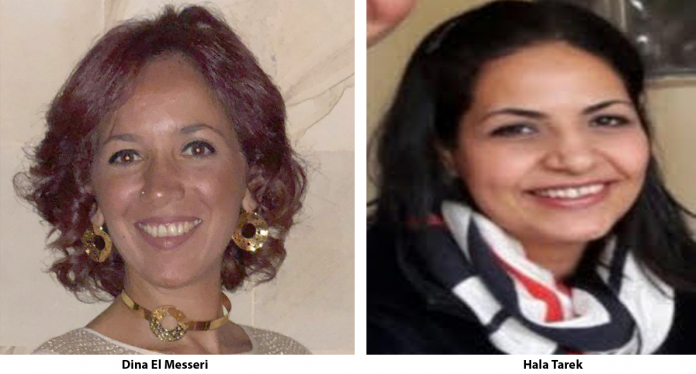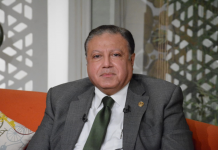Exclusively to MEO, MEO reporter, Amira Elhamy talks with, Dina El Messeri, Life Coach and author of the famous Book “Eyes of Wisdom” and Hala Tarek, Learning Development Consultant & Life Coach, to uncover every single aspect related to coaching, its benefits, its various aspects and its market in Egypt.
1-What is coaching & How coaching is different from counseling/Training?
Coaching, training, and counselling, they all share the common goal of individuals development and enhancing well-being; each with its techniques, approaches and depth.
Training is usually group oriented; where a certain “Know-How”, possessed by the trainer, and he or she disseminates the knowledge to a specific group of trainees.
There are many types of trainings including skill training, or attitude training; the most common is skill training.
Coaching on the other hand is more individualistic facilitation where the coach, whether in individual or group context, are aligned on the required goal; the coach has facilitative tools to aid the client to reach their goals, while listening and addressing powerful questions. The coach has to have certain tools to aid the client. I would say that coaching involves very minimal direction from the coach; he or she actually aids the client to find the answers they are looking for by themselves, as I said the coach is just a knowledgeable facilitator.
Finally counselling, is a form of personal consultation from an expert, where the client shares his/her subject, which they need guidance in it, and the consultant gives specific guidance and recommendation, based on their experience and expertise in the field, says Hala Tarek.
On the other side Dina El Messeri sees that training is about education and skills development. “Training assumes that the client already knows, or have the information. The agenda for the training program is set by the organization, or the trainer.
As in counseling, consultants are most often retained by the client to make recommendations on how to solve a particular challenge the client may have.
Consultants then go about the process of rectifying the challenge themselves.
The consultant, not the client, comes up with the answers and it is the consultant, and not the client, that does the work.
In contrast, the coaching process places its focus on where the client is currently, and it is directed at moving them forward to achieve positive improvements in any areas of their personal, or professional life.
Coaching involves questioning and it facilitates a client’s self-exploration, but it does not venture into the deep exploration or assessment of the past, nor does it involves diagnosis in any form. Coaching accepts people as they are, and helps them move on. The coaching process draws the answers out from the client, and then maps out a plan of action for the client to follow. The role of the coach then becomes one of guiding, encouraging, and motivating them towards achieving their individual goals”.
2. What are the main types of coaching that you practice & since when have you started your coaching career?
I’m a Professional Life Coach from ICF International (International Coaching Federation), as well, certified Strengths Coach from Gallup International, and has been practicing coaching for more than 10 years says Hala Tarek.
On the other side Dina El Messeri, started her coaching career 10 years ago.
“I am a Personal Development coach, Master NLP practitioner ( Neuro Linguistic Programing) and Mars Venus Relationship Coach . I graduated from the American University in Cairo with a Bachelor Degree in Economics. However, I embarked on the most important of all studies- the study of the self. The journey has been a personal one of self discovery and growth. I took a multitude of courses in self development and communication. My passion in life is to help people to work on themselves and discover all the needed resources that will help them move forward towards the lives they dream of, the lives they deserve”, says El Messeri.
3. How would you evaluate the coaching market in Egypt & the Middle East versus worldwide?
Unfortunately the coaching market in Egypt can be disappointing on some levels. From my perspective, coaching is a responsibility that needs to be taken seriously; what you do and say to your clients can sure influence their lives, psyches, and how they proceed and due to the fact that mostly anyone can get the certificate upon paying the fee, without much assessment and supervision that ensures that the person is ready and capable of such a responsibility, many unqualified candidates are present in the market. It is risky for sure and it negatively affects the coaching field. Unqualified practitioners are present not only in Egypt but worldwide, this is why more supervision and assessment needs to be officially applied worldwide to save the coaching profession!
Sure I don’t deny the presence of highly qualified coaches, both technically and personally, who can make a difference in clients’ lives and well-being, notes Hala Tarek.
4. How Big is the Coaching market in Egypt & the Middle East?
With a lot of certifying entities getting into place everyday, I can say it’s big market, not a small one; however as I indicated every coach has to gain enough knowledge, certified certificates or an MA, in order to be qualified.
Unfortunately, some practitioners think that by receiving some training they can practice coaching! In a nutshell the market in Egypt and the middle east for sure enjoys qualified coaches, but unfortunately it has got also unqualified ones; and it is the client right to make his/ her good enough research about the coach they will visit, explains Hala Tarek.
5. In your opinion, in Egypt/ Middle East, what are the main types of coaching people need the most?
I believe that whether in our Egyptian community or in the Middle East, we suffer from taboos, lack of self-appreciation & awareness, and lack of acceptance of the other, with the presence of lots of stereotyping.
As well enjoying healthy relationships is a main challenge that we face in our community, which can sure impact our well-being.
I believe tackling those areas competently would make a big difference on us as individuals and on our communities.
Sure relationship coaching is needed and coaching focusing on stress management and anxiety issues would really help whether in Egypt or the Middle East.
6. Which areas you believe are lacking with the coaching market in Egypt & the Middle East?
I believe specialized coaching is what we miss in general; as I believe the more specialized the coach is, the more competent he or she can be in tackling challenges of their specialty; like being a specialist only in business coaches or relationship coaching, clarifies Hala Tarek.
7. How can coaching better someone’s life ?
Coaching is an empowering & awareness uplifting process, as I mentioned, when it’s done right. It depends more on supporting the individual to reach his/her own insights, decisions, and goals by themselves, which has a highly empowering effect on increasing their confidence and their abilities. As well, much of our dysfunction and lack of happiness, stem from our lack of awareness of our own selves and limiting patterns, which are main areas that coaching is works on, says Hala Tarek.
On the other side Dina El Messeri, sees that there are many ways you can benefit from life coaching:
“Gaining clarity about what you want, improving confidence, overcoming obstacles, fear, and insecurities will set you ahead of the pack. Also it helps in implementation, recognition of the possibilities for your life. Creating a plan to reach your goals faster.
8. How can coaching benefit the business structure?
Let me just start by saying that we are holistic creatures; what we have within operates at work, in our relationships, and in every aspect of our day to day lives.
Business coaching supports in specific areas, like leadership skills, conflict management, business strategy, and managing teams, which sure benefit the business structure.
Let me add that coaches support the individual in whatever challenges they face, as well as supporting them in becoming the best version of themselves! which would certainly have its impact on their performance in all dimensions of their lives, including work with no doubts, notes Hala Tarek.
Well in my opinion executive coaches can help you improve your sales performance, your productivity, and your leadership skills, notes El Messeri.
9. What are the steps to be taken by a Public or a Private entity in the MENA region for developing its employees’ efficiency through Coaching?
First step is to take the developments of employees seriouslyand let me clarify that It’s already starting to happen in big companies in Egypt and MENA region.
Employees assessment is done on yearly basis, & deduced needs are classified to groups’ training needs, and individual coaching needs, explains Hala Tarek.
10. If you may direct a message to readers who didn’t try coaching ! what would you tell them?
We only live once, and we all need support, outside of ourselves! which can mirror what can be limiting us and what we can do to unleash our real potentials!
Good coaching would definitely help you with that!, concludes Hala Tarek.
My advice is that, you will never know until you try! The best investment you will ever make is investing in yourself ! So stop wasting your time, hire a coach and transform your life, concludes El Messeri.
Life Coaching’s main goal is about exploring & unleashing aliveness and vitality in our lives. Each client who seeks life coaching is mainly looking for this, disguised in the challenge he or she is passing through; what do you want? what’s hindering you from it? and exploring oneself, dis-empowering patterns, limiting beliefs, unlocking potential and self appreciation are the main themes












